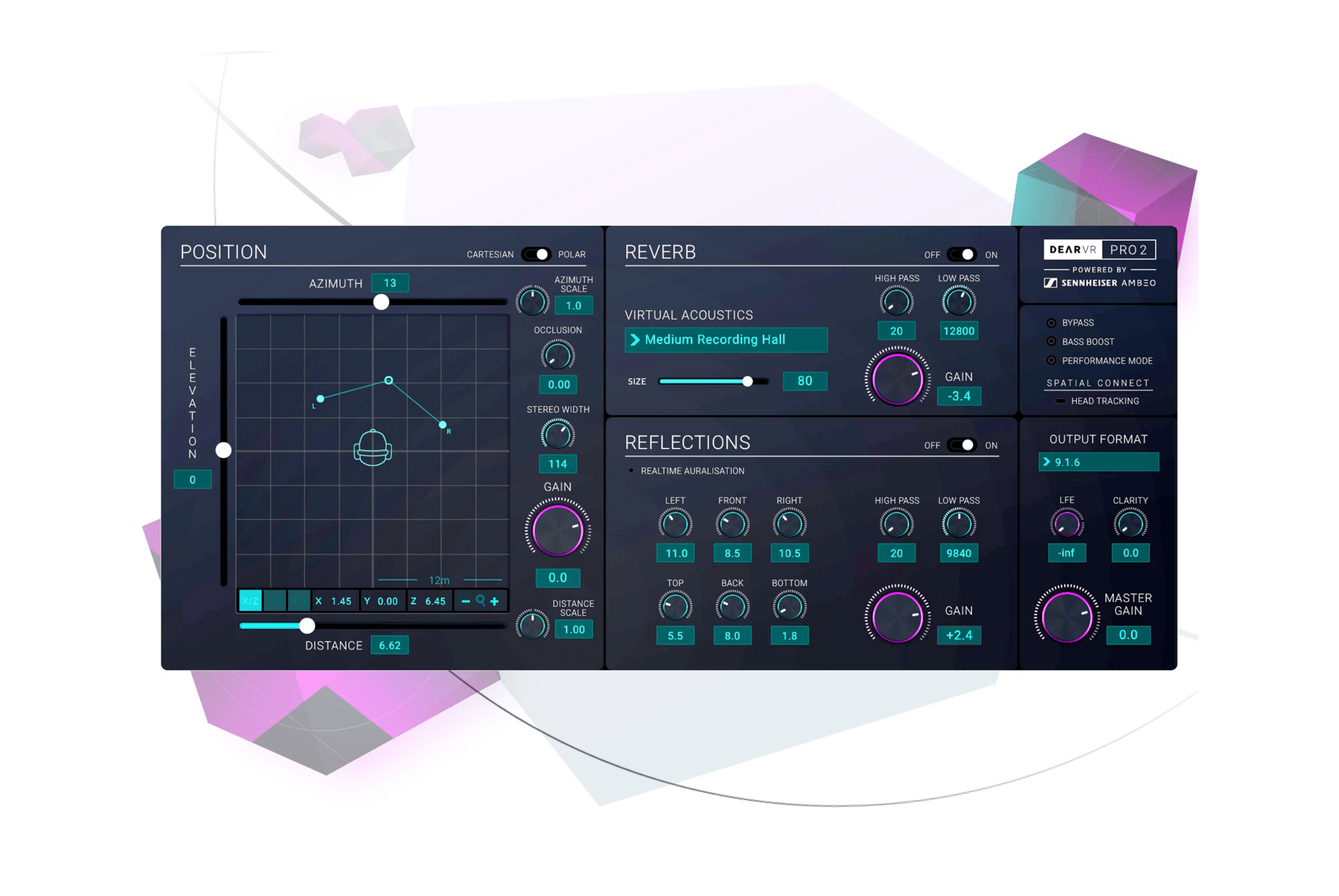
dearVR PRO 2
A state-of-the-art spatializer plugin whether mixing in stereo, multi-channel up to 9.1.6, binaural, or Ambisonics. dearVR PRO 2’s ultra-precise early reflection and reverb engine adds another layer of spatial experience, leading to true-to-life sounding productions with natural depth that puts you in the center of the sound.
- 35 multi-channel output formats up to 9.1.6
- Up to third-order Ambisonics output
- 46 pristine acoustic environments
- Support of third-party OSC head-trackers
- Native Apple Silicon Support










